Thursday 24 July 2008
Slow food savors its big moment
At the end of the summer, the gastronomic organization called Slow Food USA will host a little party for more than 50,000 people in San Francisco.
To get things ready, the mayor let the group dig up the lawn in front of City Hall and plant a quarter-acre garden. It will be the centerpiece of the festival, ambitiously named Slow Food Nation.Events will pop up all around the city over Labor Day weekend. Fifteen architects have volunteered to build elaborate pavilions dedicated to things like pickles, coffee and salami. Lecture halls have been booked, politicians invited and dinner parties planned. Nearly $2 million has been raised.
And for the first time in its 10-year history, the notoriously finicky organization has embraced corporate partners like Whole Foods, Anolon cookware and the Food Network.The Slow Food faithful say they want the festival to be the Woodstock of food, a profound event where a broad band of people will see that delicious, sustainably produced food can be a prism for social, ecological and political change.
They also realize that it may be their best chance to prove that Slow Food, as a movement, is not just one big wine tasting with really hard to find cheeses that you weren't invited to.
The American wing of the Slow Food movement, which began in Italy in 1986, has a tendency to polarize people. When it first took root here in 1998, some people were drawn to its philosophy, while others were put off by what they saw as elitism and an inflated sense of importance.
Slow Food's leaders, the chef Alice Waters chief among them, bristle at the criticism. But most acknowledge that the organization did not translate well to an American audience. As a result, it has never had as much cultural or political impact as its parent group in Europe.Now, they say, the organization is getting a makeover. And the festival in San Francisco will be the perfect place to show off a more inclusive and more politically attuned Slow Food USA.
"I don't know if it's going to be the youthful, happening Woodstock they want it to be, but it certainly has the potential," said Corby Kummer, a food columnist, book author and Slow Food board member.
"It will be a failure if it is only well-dressed people over 35 from the Bay Area treating it as if it's another Ferry Plaza Farmers Market" — a reference to the place where well-fed San Franciscans and celebrity farmers chat over perfect peaches and soft, ripe cheese.
http://www.iht.com/articles/2008/07/23/style/23slow.php
IW: This comment really caught my eye.
"It will be a failure if it is only well-dressed people over 35 from the Bay Area treating it as if it's another Ferry Plaza Farmers Market" — a reference to the place where well-fed San Franciscans and celebrity farmers chat over perfect peaches and soft, ripe cheese.
In my book about life in contemporary rural England (A Place in My Country http://www.amazon.co.uk/Place-My-Country-Search-Rural/dp/0753823888/ref=pd_sbs_b_title_14), I write about farmers markets and farm shops, which, certainly where I lived, were very much the preserve of the extremely affluent Cotswolds equivalent of the Ferry Plaza Farmers Market gang. Simply unaffordable for working or even most middle class families to be the backbone of how they shop.
Whereas here, in the Auvergne, the local market is used by everyone, and forms the very centre of our weekly shop.
Confession: about once every 6 months I go to Aldi (the low cost discount supermarket, much criticised for its use of GM foods) and buy the one product it does really well: 4.9% beer from Alsace for €1.99 for a six pack. A friend from Alsace (on the French/German border) tipped me off to this and he did me proud. It tastes great, is extremely cheap by European standards, and I can't resist. I try not to get spotted by my farming friends which is why it's a once in a while covert hit and run mission. Not busted yet, but I'll tell it all here!
www.aplaceintheauvergne.blogspot.com
Farm Blogs
To get things ready, the mayor let the group dig up the lawn in front of City Hall and plant a quarter-acre garden. It will be the centerpiece of the festival, ambitiously named Slow Food Nation.Events will pop up all around the city over Labor Day weekend. Fifteen architects have volunteered to build elaborate pavilions dedicated to things like pickles, coffee and salami. Lecture halls have been booked, politicians invited and dinner parties planned. Nearly $2 million has been raised.
And for the first time in its 10-year history, the notoriously finicky organization has embraced corporate partners like Whole Foods, Anolon cookware and the Food Network.The Slow Food faithful say they want the festival to be the Woodstock of food, a profound event where a broad band of people will see that delicious, sustainably produced food can be a prism for social, ecological and political change.
They also realize that it may be their best chance to prove that Slow Food, as a movement, is not just one big wine tasting with really hard to find cheeses that you weren't invited to.
The American wing of the Slow Food movement, which began in Italy in 1986, has a tendency to polarize people. When it first took root here in 1998, some people were drawn to its philosophy, while others were put off by what they saw as elitism and an inflated sense of importance.
Slow Food's leaders, the chef Alice Waters chief among them, bristle at the criticism. But most acknowledge that the organization did not translate well to an American audience. As a result, it has never had as much cultural or political impact as its parent group in Europe.Now, they say, the organization is getting a makeover. And the festival in San Francisco will be the perfect place to show off a more inclusive and more politically attuned Slow Food USA.
"I don't know if it's going to be the youthful, happening Woodstock they want it to be, but it certainly has the potential," said Corby Kummer, a food columnist, book author and Slow Food board member.
"It will be a failure if it is only well-dressed people over 35 from the Bay Area treating it as if it's another Ferry Plaza Farmers Market" — a reference to the place where well-fed San Franciscans and celebrity farmers chat over perfect peaches and soft, ripe cheese.
http://www.iht.com/articles/2008/07/23/style/23slow.php
IW: This comment really caught my eye.
"It will be a failure if it is only well-dressed people over 35 from the Bay Area treating it as if it's another Ferry Plaza Farmers Market" — a reference to the place where well-fed San Franciscans and celebrity farmers chat over perfect peaches and soft, ripe cheese.
In my book about life in contemporary rural England (A Place in My Country http://www.amazon.co.uk/Place-My-Country-Search-Rural/dp/0753823888/ref=pd_sbs_b_title_14), I write about farmers markets and farm shops, which, certainly where I lived, were very much the preserve of the extremely affluent Cotswolds equivalent of the Ferry Plaza Farmers Market gang. Simply unaffordable for working or even most middle class families to be the backbone of how they shop.
Whereas here, in the Auvergne, the local market is used by everyone, and forms the very centre of our weekly shop.
Confession: about once every 6 months I go to Aldi (the low cost discount supermarket, much criticised for its use of GM foods) and buy the one product it does really well: 4.9% beer from Alsace for €1.99 for a six pack. A friend from Alsace (on the French/German border) tipped me off to this and he did me proud. It tastes great, is extremely cheap by European standards, and I can't resist. I try not to get spotted by my farming friends which is why it's a once in a while covert hit and run mission. Not busted yet, but I'll tell it all here!
www.aplaceintheauvergne.blogspot.com
Farm Blogs
Subscribe to:
Post Comments (Atom)







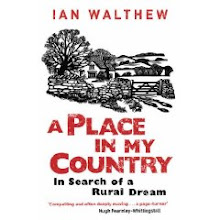


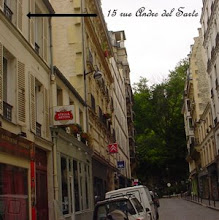
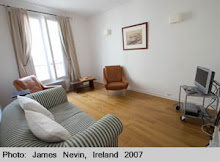

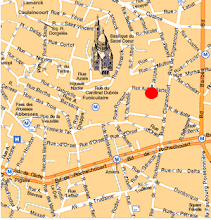

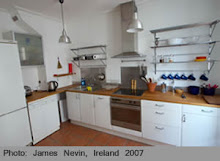
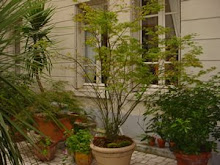
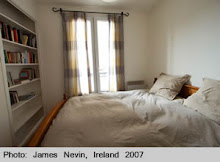



No comments:
Post a Comment